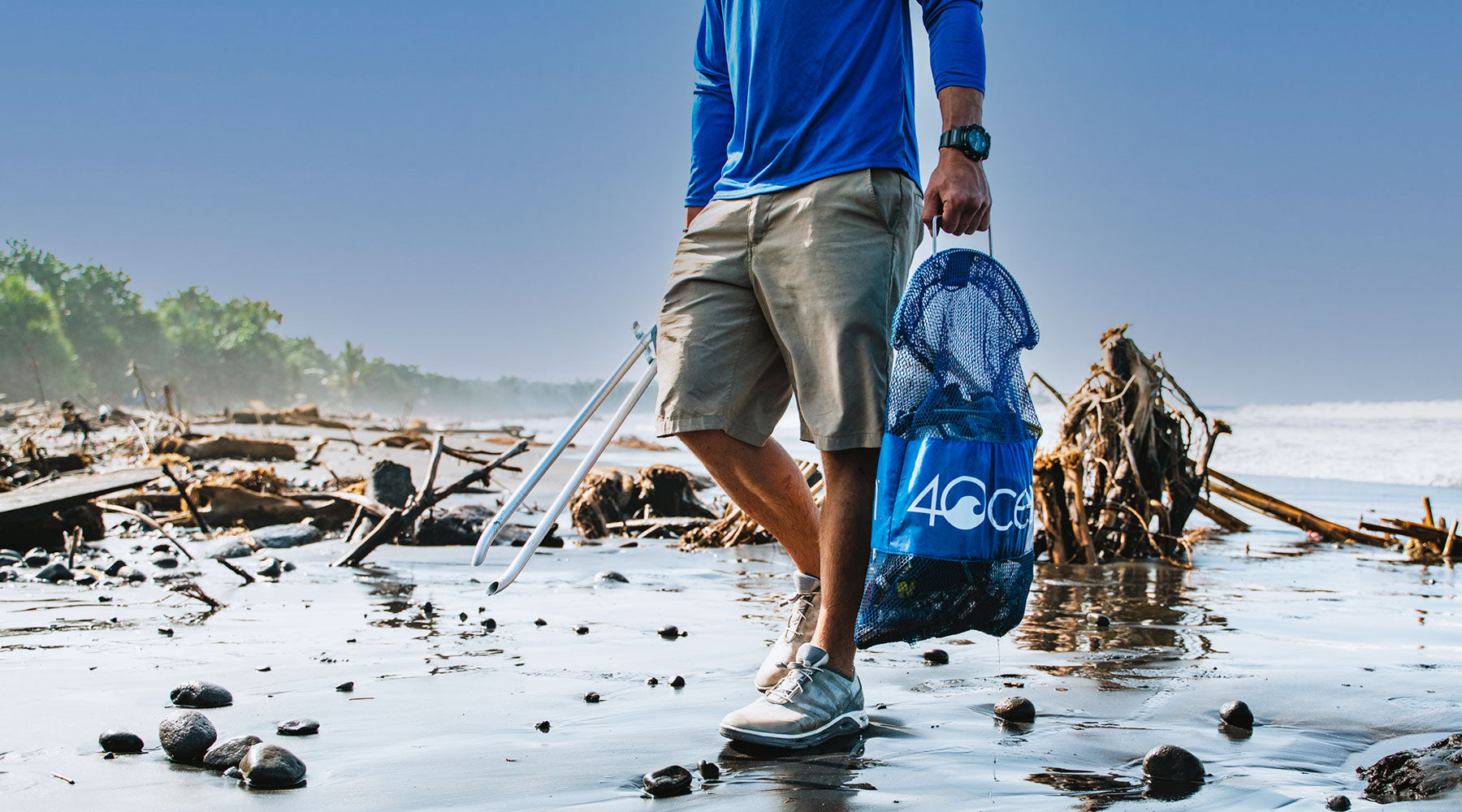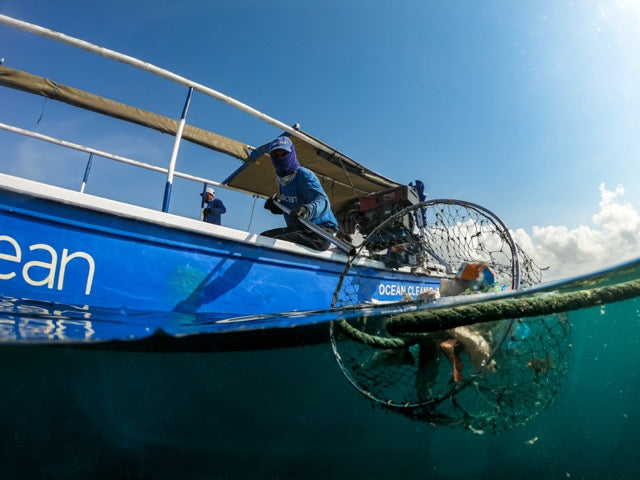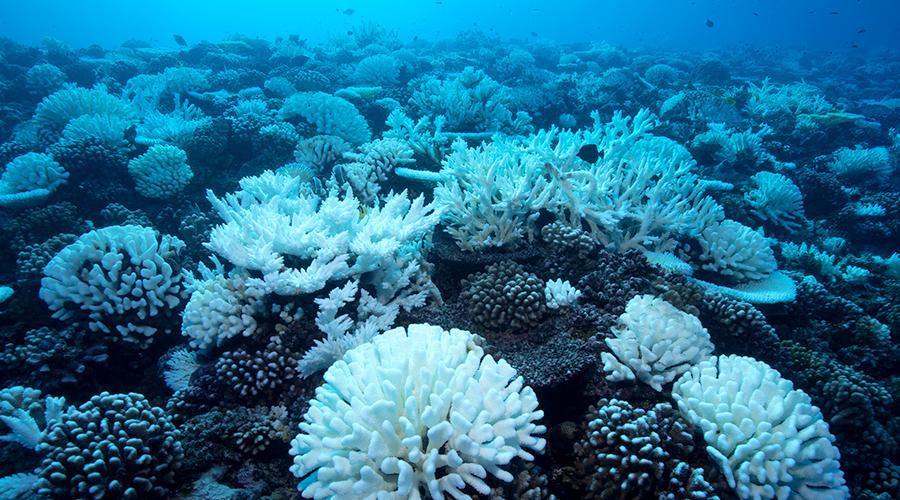Raising the voices of Indonesian women to restore their homeland’s coral reefs
Written by Mélissa Bergeron, slow explorer, and gender equality advocate
This article is republished from seavoice, a magazine that delves deep into the intricate relationship between culture, climate, and water.
This isn’t just about saving coral; it’s about breaking barriers, defying the odds and creating a powerful force for change.
As the world witnesses the alarming global decline of coral reefs, a surge of restoration projects has emerged worldwide. While the growing commitment to protecting the ocean’s biodiversity is vital for preserving this precious environment, the increased involvement of individuals underscores a concerning reality — the prospects of establishing a career in the sector are becoming far from equal. As a woman, your path will be strewn with obstacles, particularly if you hail from a minority background in a developing country. The odds of turning your conservation dreams into reality seem almost insurmountable.
Fuelled by a dream to reduce the gender gap in marine science and actively protect our oceans, Rose started training local women from across Indonesia to set up their own coral restoration projects. The aim is clear: to build a strong network of female leaders protecting the reefs of Indonesia.
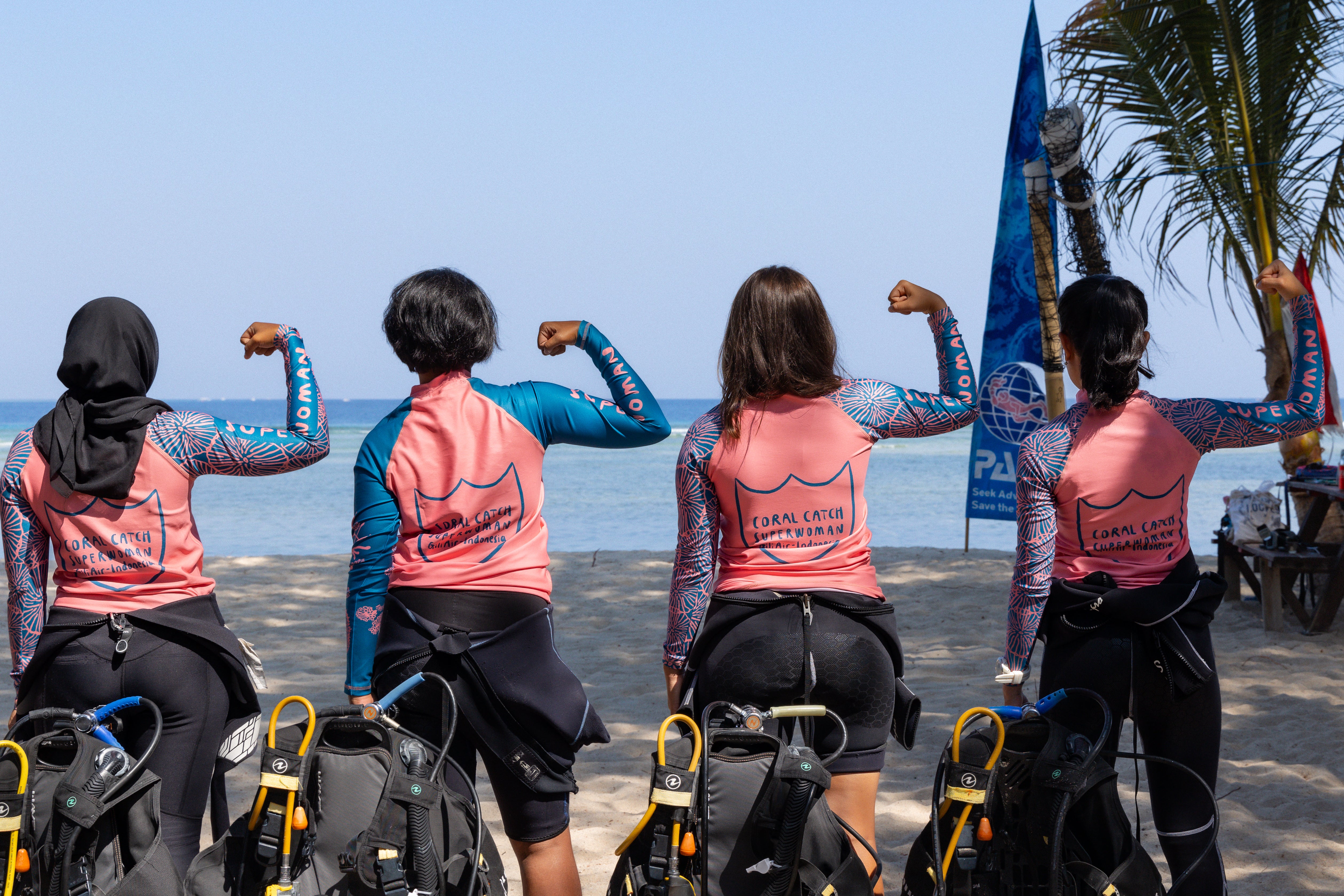
Coral Catch Superwomen getting ready to protect and restore the reefs of Indonesia. © Valerie Blanchard
It all starts with a woman who found a home in the ocean
“The voices of women are frequently not heard.” These words were pronounced in 2019, by United Nations Secretary-General António Guterres, urging action to reach gender equality in marine science. Although there is still little data on this issue, research has proven that women are underrepresented in the marine conservation industry [1]. The issue is not that women are unwilling to pursue a career in ocean conservation. In fact, they occupy more seats at universities than men [2]. However, their prospects for decision-making roles are notably limited. The higher you go in the hierarchy, the fewer the females: the leaky pipeline keeps them at the doorstep [3].Rose had never studied marine science, but her heart had always beaten faster close to the ocean. In 2012, she left the Netherlands with only a backpack and a head full of dreams to explore Indonesia, Nepal, and Sri Lanka and figure out what a life full of purpose would look like. She didn’t explore Kathmandu nor climb Lion Rock because once her feet touched Gili Air, Indonesia, she never left the island. She began work as a scuba instructor and was saddened by the declining diversity of marine life on the archipelago.
This led her to establish "Gili Shark Conservation" in 2015 with two friends. Within a few years, hundreds of enthusiasts were trained to conduct surveys underwater, from shark and turtle identification to coral restoration projects. Due to their efforts, people from all over the world were gathering precious data every day to protect the marine protected area, Gili Matra Marine Reserve.
In 2020, a global pandemic forced the team to put the projects on pause. As a beacon of light in the midst of chaos, Rose was thrilled to discover new life growing in her belly while the pandemic gripped the world. Breastfeeding her daughter kept her awake for long hours, which she used to consider how she and her colleagues might fund their conservation projects without the help of international visitors. A sign came in the form of a message from the United Nations — they were providing grants to coral restoration projects. But with thousands of research teams working all around the world on that issue, they would need to do things differently to draw attention to Gili Air. One night, it clicked: “What about working exclusively with local women?”
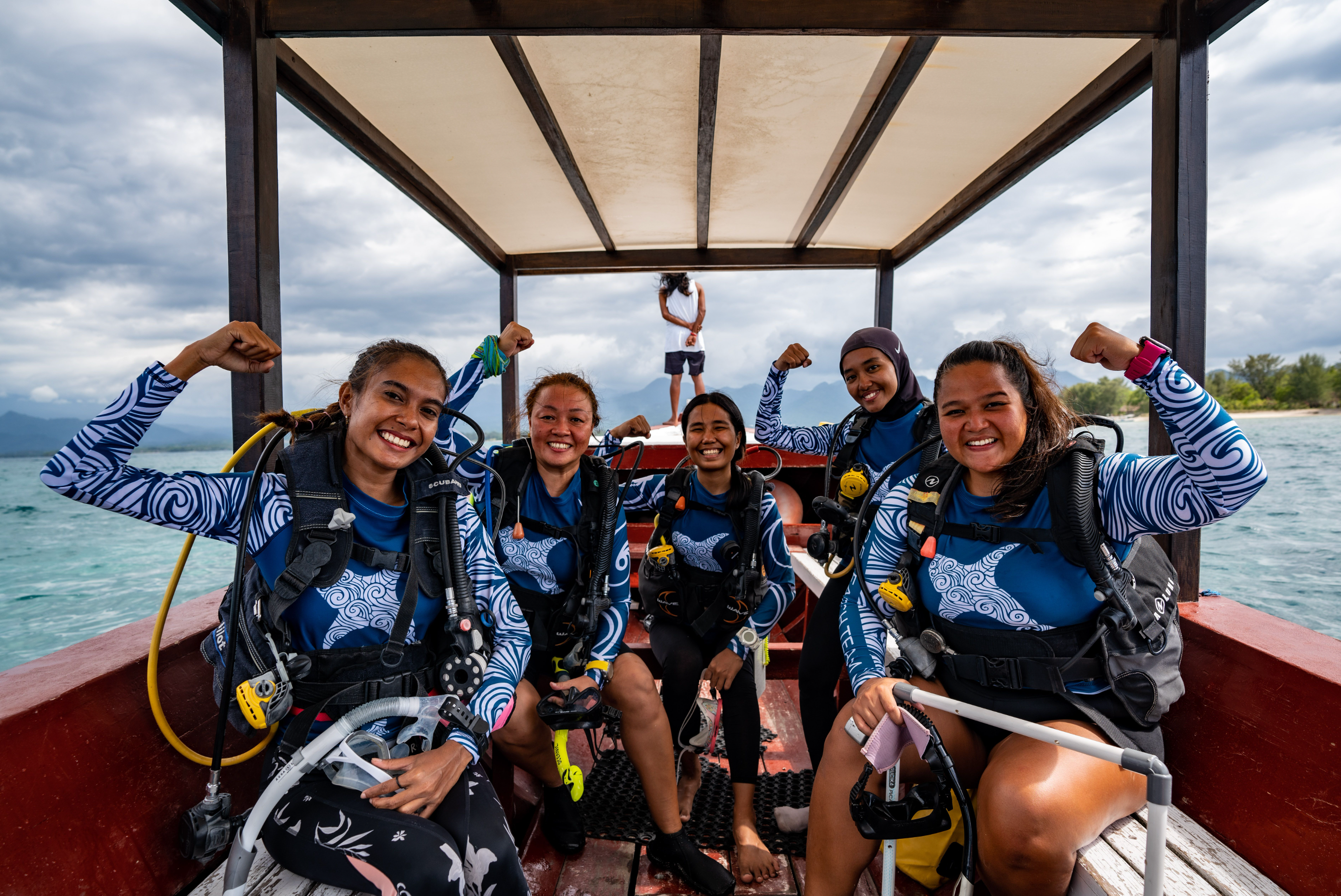
Coral Catch Superwomen on their way to the coral restoration site. © Charlie Fenwick Underwater Photography
Sweeping away the barriers
As her excitement translated into words and she shared the project with her husband and close friends, concerns began to surface. Will participants have the physical strength needed to carry and set up equipment? Will their families allow them to travel so far away? Will they embrace their skin growing darker in a society that idealises lighter tones? As barriers were rising one by one, her determination only continued to grow. If she wanted to know the answers to these questions, she had to ask those concerned. So, one day, Rose posted a message on social media asking if anyone wanted to apply for a scholarship in which they would be taught how to set up their own coral restoration project. Although she faced doubt from those around her regarding the interest of local women in getting involved, she received one hundred and fifty applications from women living all over Indonesia ready to dive into coral restoration. Coral Catch was born.
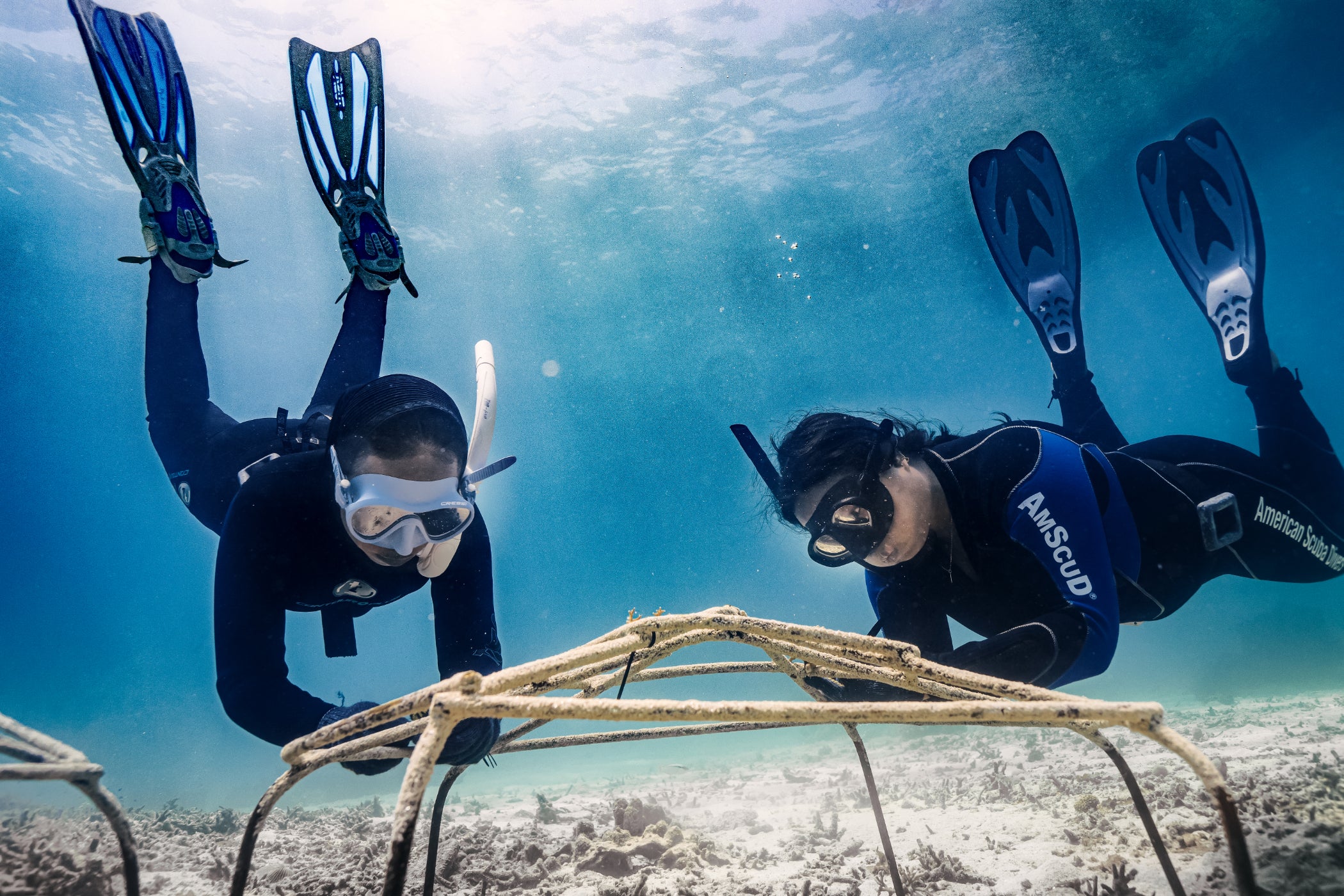
Coral Catch Superwomen Qinthan and Aulia attaching coral fragments to artificial reef structures. © Florian Allgauer
The United Nations didn’t select Coral Catch as a grantee, but the engine was already on. Rose found the funding to start a small pilot, and six months later, four women were starting a nine-week training programme created to give them the skills to set up and monitor a coral restoration site.
Today, twenty women have graduated from the coral restoration programme on Gili Air. Coral Catch’s Superwomen: the Coral Catch trainees are called this for a reason. They are mastering tricky, diverse and invaluable skills. If you hear the engine roaring, it’s because they are welding rebars, building the structures that will host their coral fragments. Setting up a restoration project requires management skills, so they attend workshops to give them the knowledge to plan their projects, find funds, and manage their social media.
They show up every day motivated to physically and mentally commit to their work restoring the marine environment, acting as role models for other women in their communities. Their strength, determination and bravery impress the team every day.Marine conservation only works with the community being actively involved, so the women spend their time on land spreading awareness and sharing their love for the underwater world. Pass by the school and you will see the children smiling, sharing what they have learned about the challenges the ocean is facing. Enter the dive shop and you’ll see local women in the pool learning how to swim. Coral Catch programmes teach that education is a very strong tool for change and the women have heard this loud and clear. After benefiting from the incredible Gili Matra Marine Reserve as a training ground, they are always eager and excited to give back to the local community.
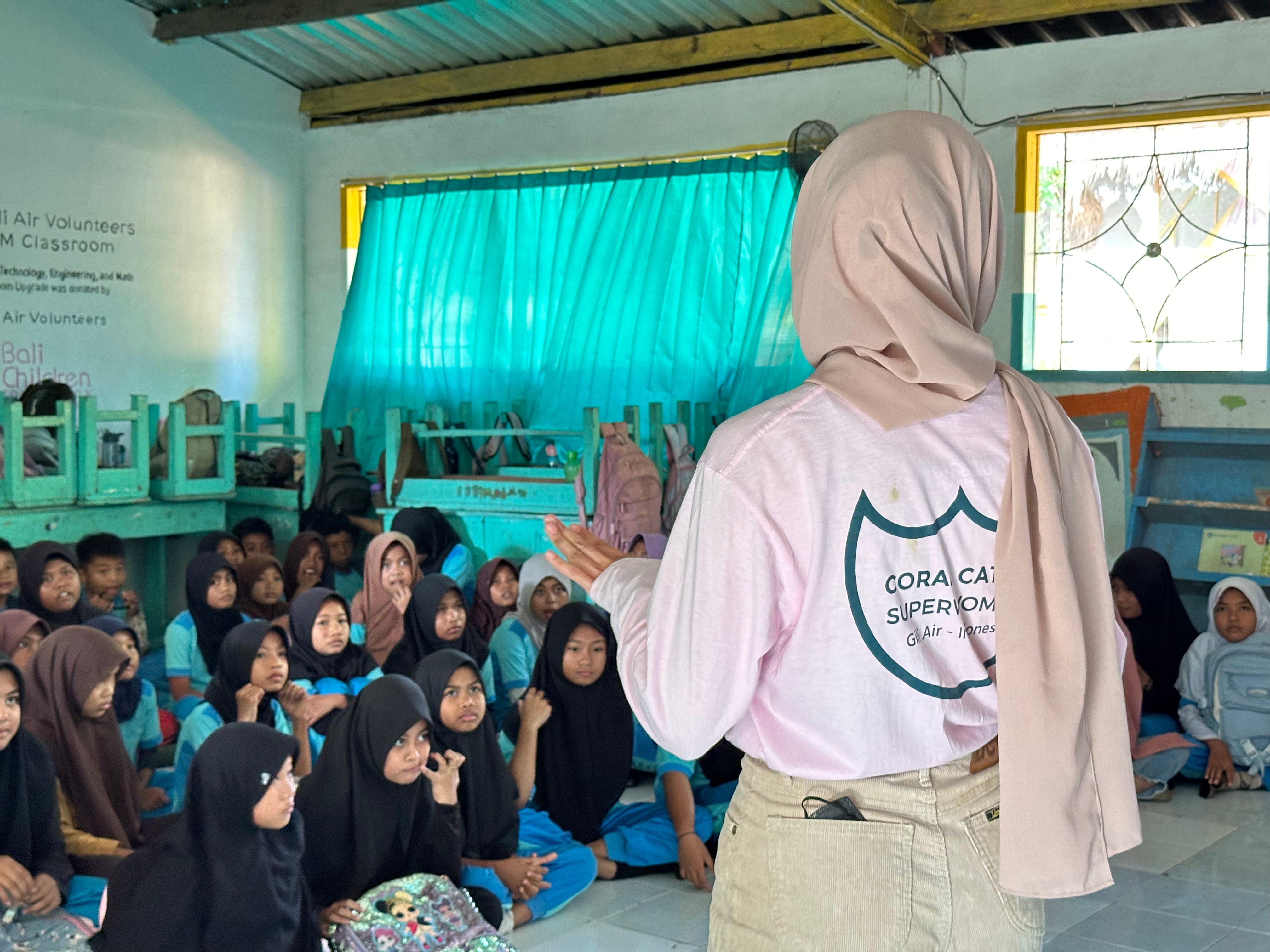
Coral Catch Superwoman Sera teaching the local children of Gili Air about the importance of coral reefs.
© Maria Sattwika Duhita
Creating room to design a bright future
Coral Catch quickly became more than a scholarship programme. Imagine four women from different educations and cultures living together for nine weeks, sharing their room, their dreams, and their fears. For the first time, they are connecting with women to whom they can express similar worries: How to combine career and motherhood? How to take care of your mental health? How to deal with being the first one taking a different path in the family?
Empowering women is providing a space for women to feel safe and heard. Then, let the magic happen and you’ll see a whole universe of new prospects open up.
Rose has made it her mission to train and empower one hundred women to pursue a career in marine conservation in the next five years. Day after day, batch after batch, this dream is coming true. Women from every corner of Indonesia have joined forces to safeguard and revive the nation's reefs. Initially, she had reservations about whether they would revert to their prior lives after completing the programme. To her delight, every single one of these inspiring Superwomen chose to share their passion for the ocean with the world. Today, they are actively contributing to marine conservation, pursuing careers in the diving industry, or securing scholarships to advance their studies in marine science. Witnessing these ocean advocates come together to preserve the incredible biodiversity of their homeland is the most gratifying reward anyone could ask for.
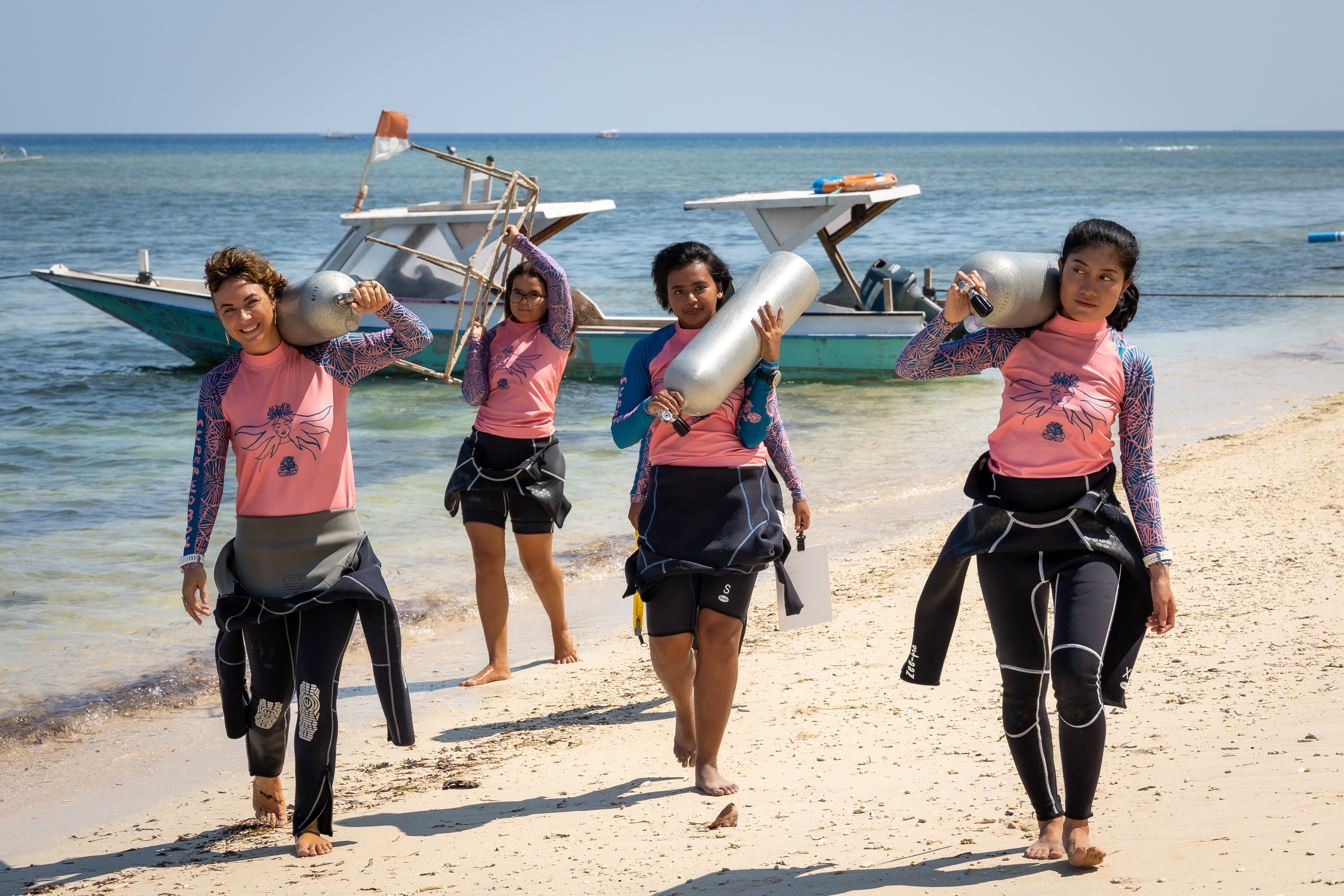
Founder Rose Huizenga and the Coral Catch Superwomen getting ready for another coral restoration dive.
© Valerie Blanchard
Expanding the sisterhood
To grow the project and convince more sponsors to join, she reached out to female marine scientists and diving leaders to join the sisterhood as ambassadors. She was overwhelmed by the outcome. Not only did she receive extremely enthusiastic replies, but these professionals went above and beyond in supporting the Coral Catch initiative. They not only expressed their willingness to endorse the Coral Catch image, but also generously offered to share their knowledge and build the women's confidence. This has become a pivotal aspect of the programme, as it allows trainees to recognise that experts from around the world support and endorse their mission.
The feeling of being part of a community that shares your values is sometimes all you need to start moving mountains.
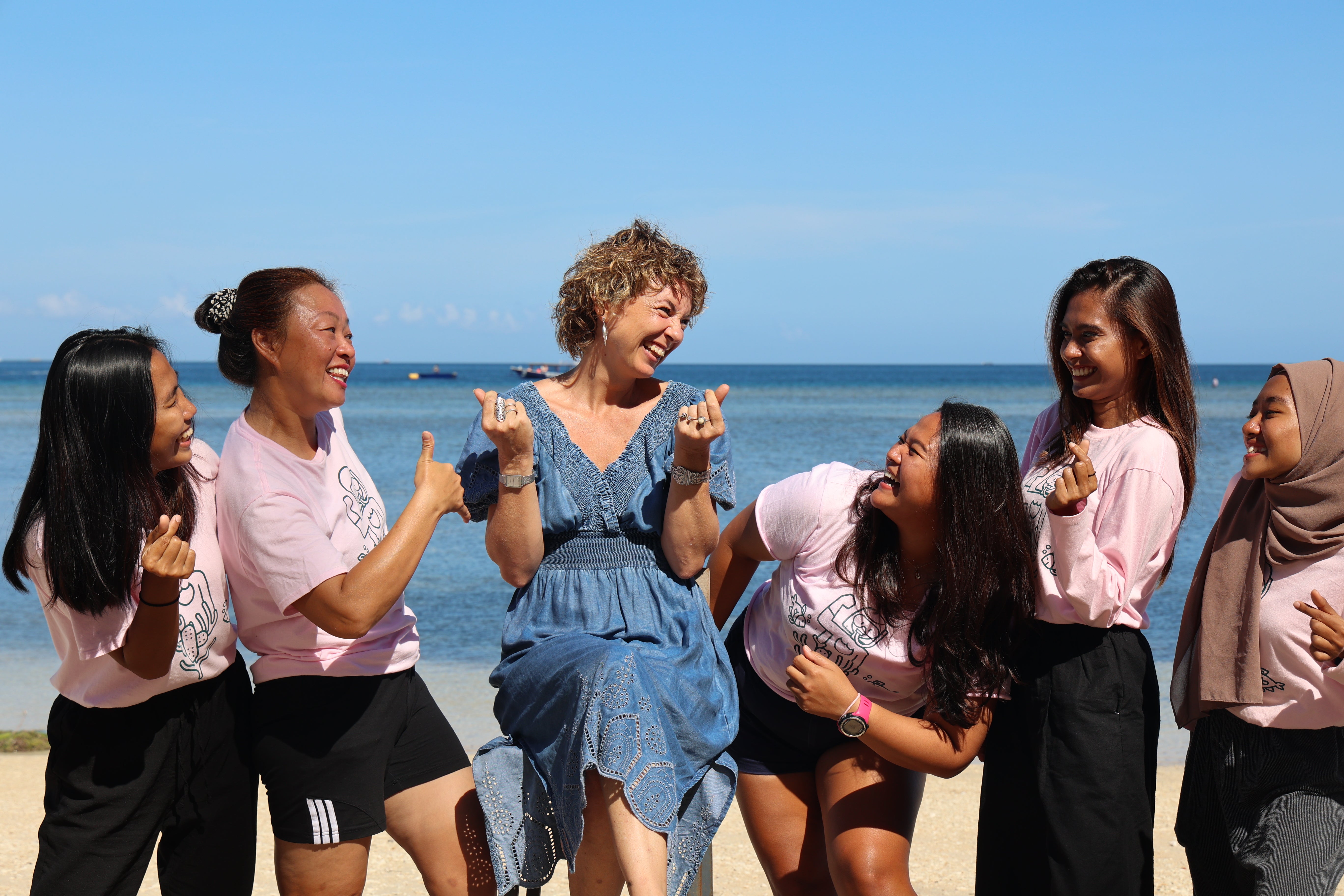
The Coral Catch team is now solely run by a team of former Superwomen. Cenna, 24 years old, was one of the first women to benefit from the programme before going back to Java to work on marine research projects. The Coral Catch team were so proud to see her don Coral Catch’s colours again this November, this time as Lead Scientist and Programme Manager for the 2024 Superwomen. For some women, Coral Catch is a catalyst for a complete change in their career path. Wika, 28 years old, worked in marketing and communications in Bali before joining the programme. After 9 weeks on Gili Air as a trainee, she’ll keep her wetsuit but change her hat to join the Coral Catch staff as an intern, helping maintain the coral restoration site in the water and engage the local community on land. With the trust built between the women during the scholarship being so precious, Coral Catch hopes to preserve that safe space even after the programme is finished. Caterina, a marine biology student freshly certified by a PADI Divemaster Scholarship and former Superwoman, is joining the team in January to coordinate the Coral Catch alumni. The circle comes back around, those who benefited from a springboard to pursue a career in marine science are now helping others to dive into the beauty of the underwater world.
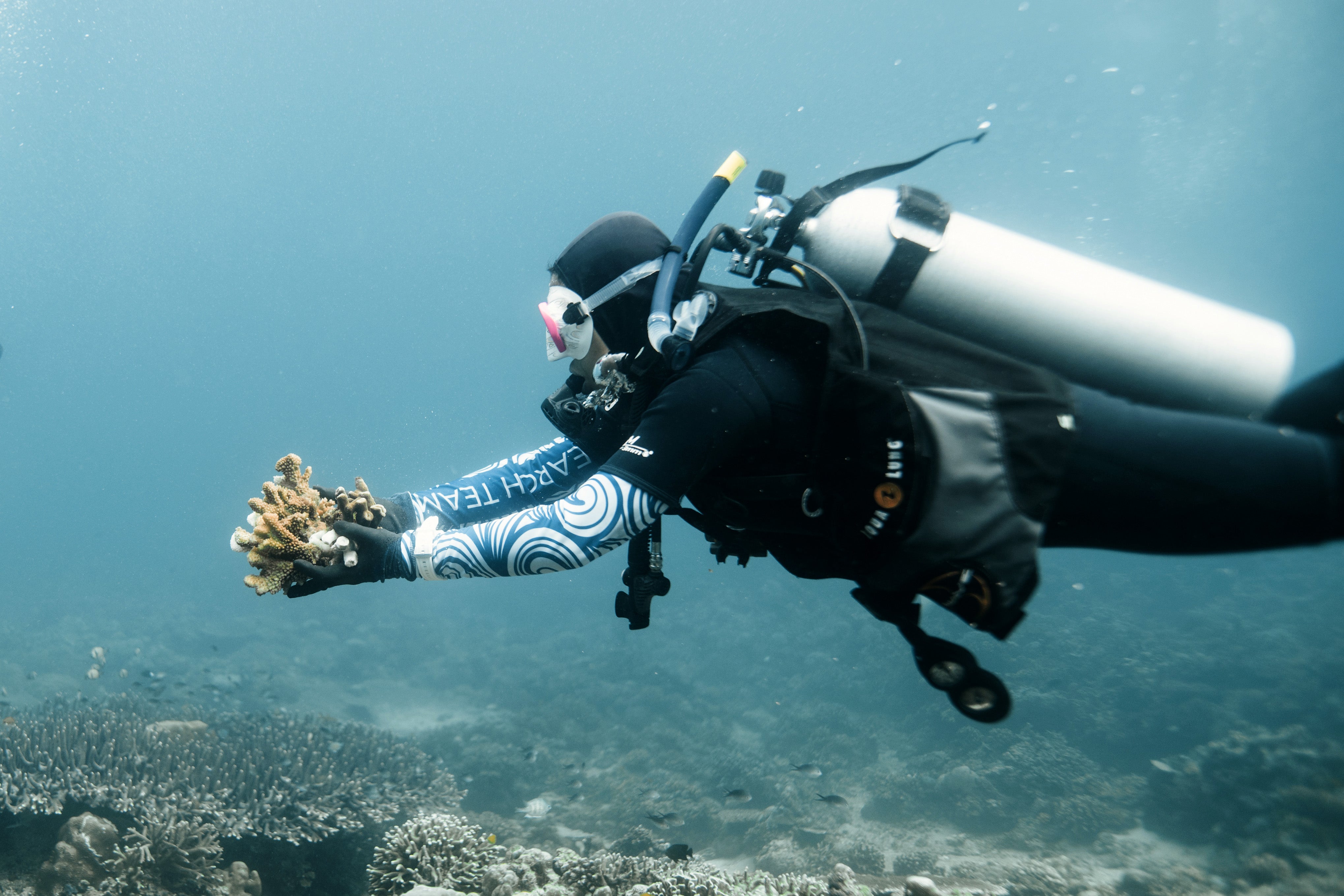
Coral Catch Superwoman Yasmin collecting coral fragments.
There is still much work ahead to restore Indonesia's reefs. An even more challenging task lies in achieving gender equality across the marine science sector. However, one thing remains clear: we're on the right path, expanding the horizons for marine science one day at a time. Ultimately, attaining gender equality in the marine conservation industry and addressing environmental challenges share the same finish line — a world where our oceans are a safe space, both for the creatures that dwell there and for the women working towards protecting them.
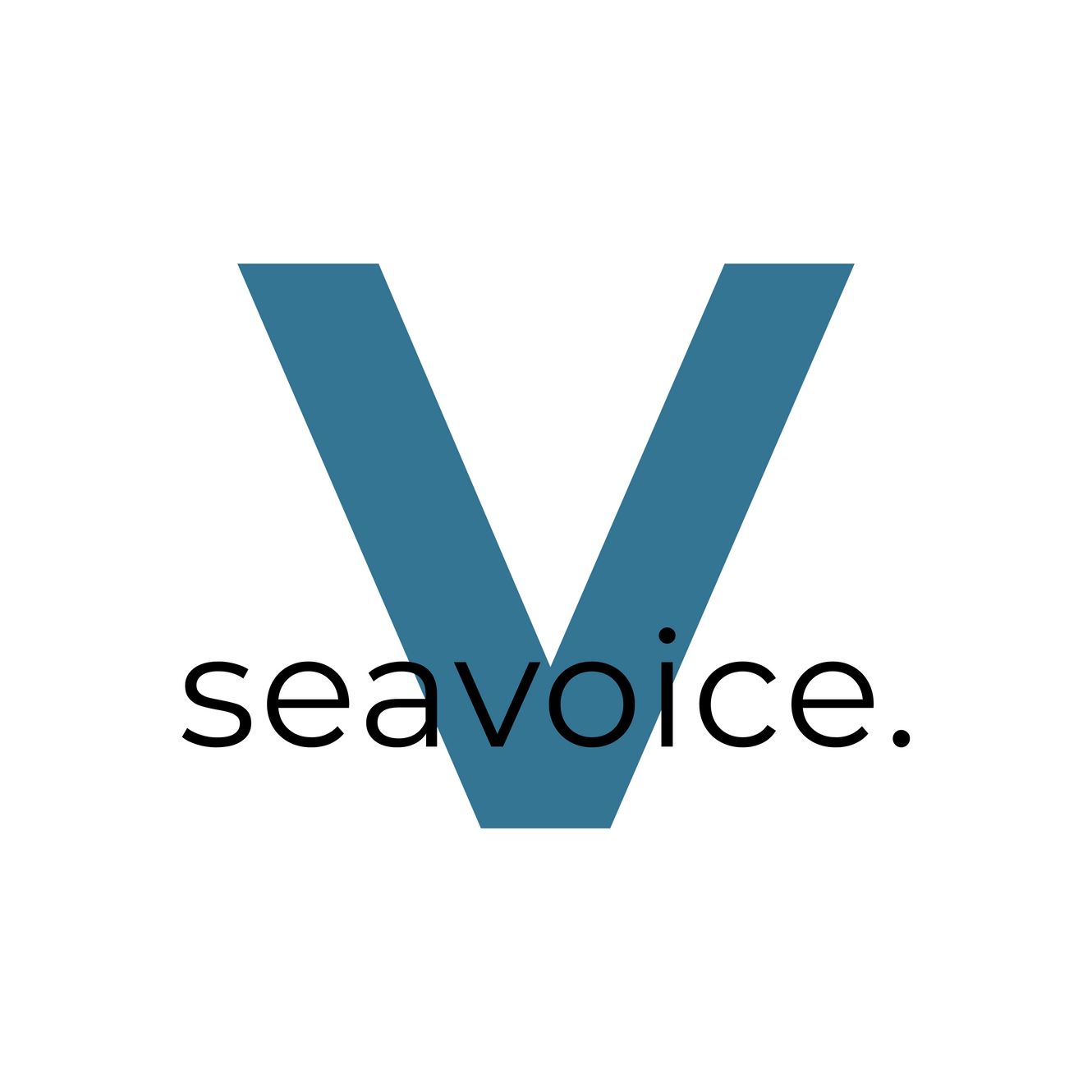
About seavoice.
Seavoice is an innovative magazine that delves deep into the intricate relationship between culture, climate, and water. Through thought-provoking articles, captivating stories, and insightful narratives, the quarterly volumes shed light on the intersection between the ocean and culture, inspiring collective responsibility for our blue spaces. seavoice. is a recognised action of the UN Ocean Decade under the Ocean Decade Heritage Network’s Cultural Heritage Framework Programme. With a focus on the key global challenges of the UN Decade of Ocean Science, seavoice. emphasizes the importance of understanding the complex interplay between culture and the environment in tackling the pressing issues we face today.
seavoice mission: In a world where the health of our oceans, rivers and lakes is rapidly declining, seavoice. amplifies the voices and stories of people inspiring action to protect and restore these precious environments. By sharing the stories and work of individuals who have a deep connection to bodies of water, seavoice. seeks to instill a profound appreciation for their significance.
Article description: Rose Huizenga, the visionary behind Coral Catch, shares the incredible story of Indonesian women leading a revolution to restore their country's coral reefs. Amidst the global coral decline, this article unveils a unique initiative empowering local women to become leaders in coral restoration. Breaking barriers and challenging societal norms, these ‘Superwomen’ are not just saving coral; they're forging a path towards gender equality in marine science.
Visit our website at coralcatch.org and follow our Instagram @coralcatch for more information or to get in touch! This article was written by Mélissa Bergeron @lesrevesdeme.
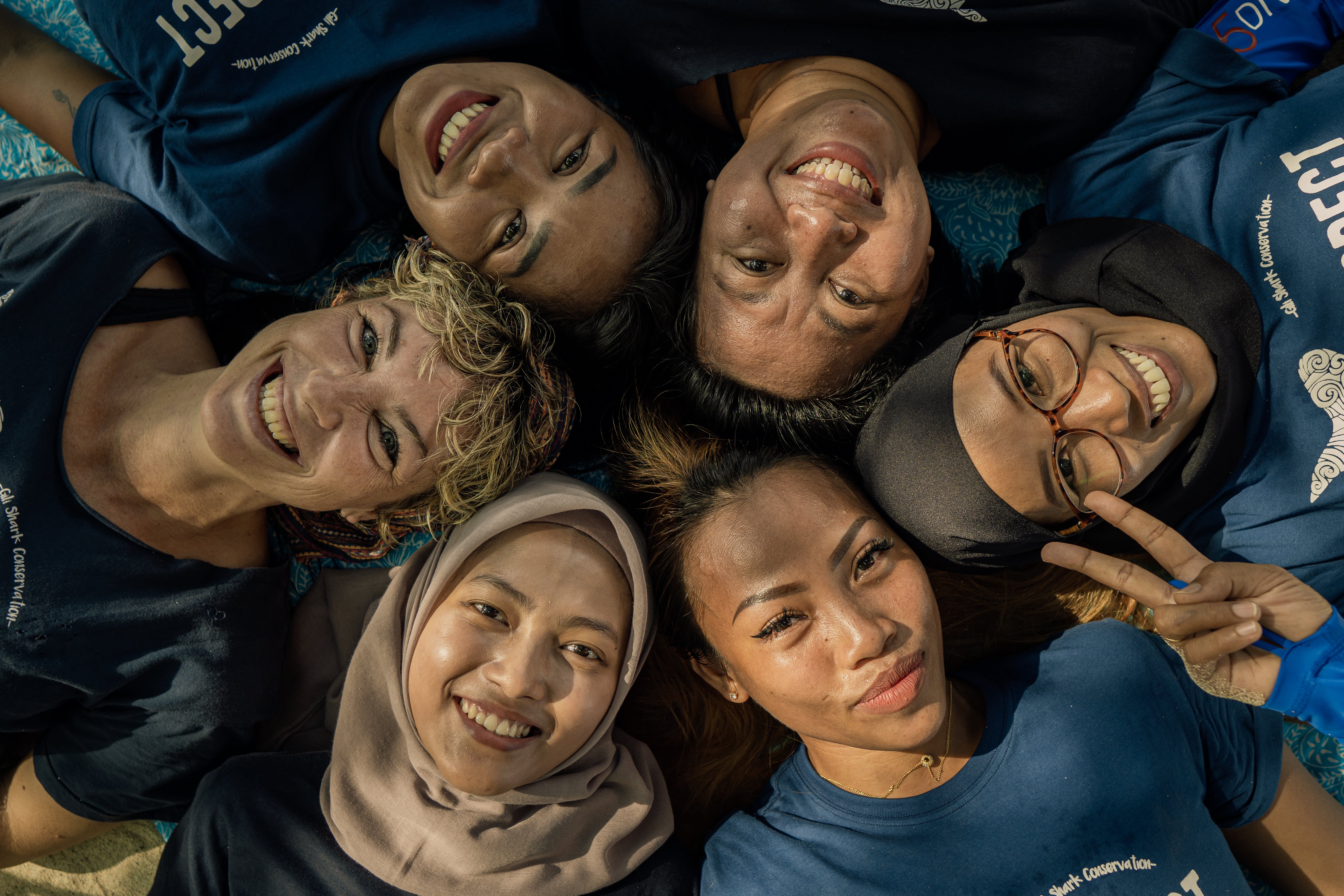
You May Also Like
